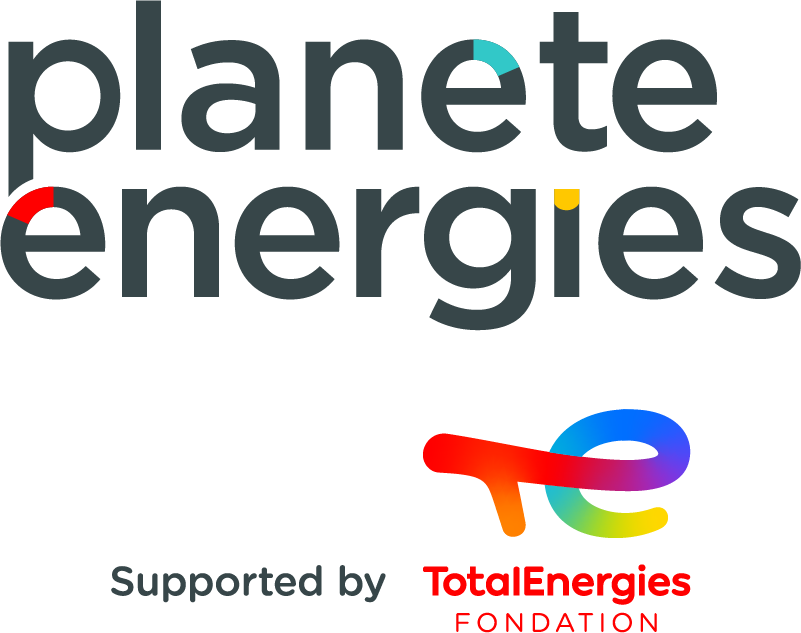The Energy Efficiency
10 min read
The energy and environmental transition will only succeed if society changes of its own free will. François Moisan, Executive Director of Strategy & Research at the French Environment and Energy Management Agency (ADEME), explains the philosophy behind the scenarios elaborated by ADEME to Planète Énergies.
"The assumes profound changes in our technologies, economy and consumption patterns. We are talking about real transformations, not slight modifications. An ambition like that can make people nervous, as they start thinking that they will have to deprive themselves, or drive less.
ADEME's forward-looking scenarios of French society in 2030 and 2050 show that the goals can be attained without sacrificing quality of life or lowering incomes – on the contrary. The job is to persuade people that the energy transition is feasible without going back to the days of reading by candlelight.
ADEME's energy transition scenarios start with an effort to reverse past trends through 2030. An ambitious policy to control energy use, for example, would cut demand by 18% in absolute terms. Looking out to 2050, we took a much more prescriptive approach and created a scenario that met the factor of four target of cutting greenhouse gas emissions to one quarter of what they are today, so that France does its part to keep at less than 2° C. That means halving energy demand without slowing economic growth or compromising comfort.
The biggest challenge of the energy transition is demonstrating what it means for people. For example, it means that we will be living in renovated buildings that are much more energy efficient by 2050 thanks to existing technologies, as well as to anticipated technical and economic advances, as part of the drive to achieve a totally carbon-free economy by the end of the 21st century. We will be using transportation options featuring technological advances now being developed or deployed, and vehicles adapted to each type of use. Companies will have leveraged the cleanest, most efficient production technologies, smoothing the way for and the circular economy. And increasingly, energy production will focus on decentralized renewable energies, including wind and PV solar to generate ; biomethane and for vehicles; in gas networks; and for .
This vision is no technological utopia. We didn't fill our scenarios with daring technological shifts, but rather included technologies that are already in use or soon to be on the market.
Profound changes in our lifestyles will probably be needed to meet our improvement targets. Some of them are already happening, such as new mobility services and collaborative consumption (or sharing of goods and services) supported by new communication technologies. Others will be deployed through regional pilots. The smart tech built into future housing will allow people to be both energy producers and consumers, with the ability to make trade-offs among their various needs and sell what they produce. Food consumption patterns will evolve into more healthful, environmentally friendly models, creating new opportunities for more sustainable farming. Such changes will be based on new business models, driving a new type of growth and the emergence of new occupations.
We are not talking about reducing growth. Our scenarios forecast a gross domestic product two points higher in 2050 than it would be if current trends continued. They also predict 300,000 more jobs in 2030 and 800,000 more in 2050.
Countries that transition quickly will lead the pack in the 21st century."

Jean-François Minster
Any transformation of the has to be considered within an open, global framework that reflects the real world in which we live. In the decades ahead, will be the main driver in achieving this transformation. Jean-François Minster, Total's Senior Vice President, Scientific Development, explains the issue’s planetary scope to Planète Énergies.
“Transforming the energy system is a global economic, geopolitical and environmental challenge. It hinges first and foremost on the uses and needs of the world's population, which is both growing (seven billion today, eight to eleven billion around 2050) and developing economically, especially in the poorest countries.
It also depends on access to natural resources – water, food, energy, and minerals – that are not evenly distributed around the world. When it comes to resources, people, technologies, products and services, the economy is now global.
Although it's true that problems must be examined at the national level, because that's where people live, we can't ignore the fact that they're embedded in a global system. We need others' resources and technologies, just as they need our resources, technologies and development assistance in a globalized economy where cost factors differ from country to country.
It would be a mistake to think about the future of energy in a single country, while ignoring this very real planetary dimension.
It would be an even bigger mistake with respect to . Environmental challenges are quite obviously global and France is only a tiny part of the big picture, even though it must, of course, concern itself with the issue.
Similarly, it would be wrong to believe that we can grow a "green economy" by creating the necessary wealth and jobs domestically, while ignoring others and pretending countries don't trade.
We need to trade in an open world, using a fluid, flexible approach. France has agricultural resources to offer and needs minerals that it has to buy elsewhere. A technology that we are working on may become mature somewhere else. Industrial products made by others will make their way into our country, and that's a positive thing. It's an illusion, for example, to think that France will develop an entire photovoltaic industry domestically, when its small market doesn't justify the cost and the same technology is being developed simultaneously elsewhere.
Energy Efficiency, the Top Driver
The main driver to focus on in this situation, both now and in the long term, is energy efficiency, which looks to be a decisive tool for reducing greenhouse gas emissions over the coming decades.
Although most efficiency gains are in transportation and housing, I'd like to emphasize the third sector – industry. Industry offers the greatest number of quick payoffs: energy use has a cost, and anything that lowers that cost widens margins and immediately stimulates business activity. Although we must push for energy efficiency in the most industries, the same is true elsewhere, for example in farms and food plants, supermarkets, trade, and all types of services.
Energy efficiency can be improved everywhere, both by building efficient new plants and "revamping" existing facilities. The market for technologies is global. When improvements are made at a plant, no matter where it is in the world, it creates advantages for the technologies deployed and opportunities for growth wherever there is a need.
Here too, the global dimension is critical. We need to take the easiest steps that will save the most energy at the lowest cost, wherever it is most effective. That could mean in Europe, but not exclusively, and we shouldn't limit ourselves to a particular region. Europe needs to see the collective benefit of global initiatives as being a benefit for Europe.”






















